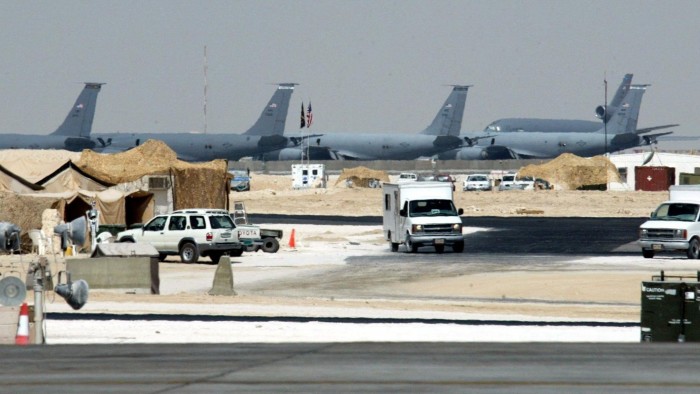Share this @internewscast.com
Unlock the White House Watch newsletter for free
Oil prices continued to drop as Asian markets opened on Tuesday, with traders feeling a sense of relief due to signs of easing tensions between Iran and Israel.
The price of Brent crude, a key global oil benchmark, decreased by 4.1 percent to $67.61 per barrel. This decline followed a statement from US President Donald Trump, who suggested that Iran and Israel had reached a ceasefire that would put an end to their conflict within 24 hours.
On Monday, oil prices had already seen a significant decline after Iran launched an attack on a US base in Qatar. The markets perceived this as a move to de-escalate tensions, reducing the likelihood of a major assault on crucial energy infrastructure. Brent crude had ended Monday trading with a 7.2 percent decrease, settling at $71.48 per barrel, marking the steepest fall since August 2022.
The moves marked a sharp turnaround from the open on Monday, when Brent surged above $80 as traders responded to US strikes on Iran’s nuclear facilities at the weekend.

But developments on Monday convinced traders that the conflict was cooling.
Qatar said it had repelled a missile barrage fired by Iran, which targeted the Al Udeid air base near Doha, where 10,000 US troops are stationed.
Following the attack, Helima Croft, a former CIA analyst now at RBC Capital Markets, said: “The market is now clearly pricing in major de-escalation between the US and Iran.”
Croft added that traders were betting on a “repeat of the January 2020 dynamics”, when, during Trump’s first term as president, Tehran retaliated against the US’s killing of its top military official by firing missiles at Iraqi bases hosting American troops. In that case, Tehran telegraphed the attack to Trump through back channels in advance.
“Iran’s decision to retaliate via a well telegraphed missile attack on US bases implies that they are less likely to weaponise oil,” said Michael Alfaro, chief investment officer at Gallo Partners, a hedge fund focused on energy and industrials.

Analysts said the decline also reflected traders judging that Iran would not attack important Middle Eastern energy infrastructure or attempt to close the Strait of Hormuz, the channel for about a quarter of the world’s seaborne oil trade, in response to the incursions by the US and Israel.
“Oil markets have come to realise with a jolt that Iran has no interest in an uncontrolled conflagration. As in 2020, Tehran has calibrated a bare minimum response,” said Bill Farren-Price, at the Oxford Institute for Energy Studies.
Analysts also said the crude market was supported by plentiful supply, particularly after the Opec+ group of oil producers lifted its output targets in recent months.
“Another reason for the lack of war premium is the flood of oil that is hitting the market,” said Robert Yawger, commodity analyst at Mizuho Securities, an investment bank.








